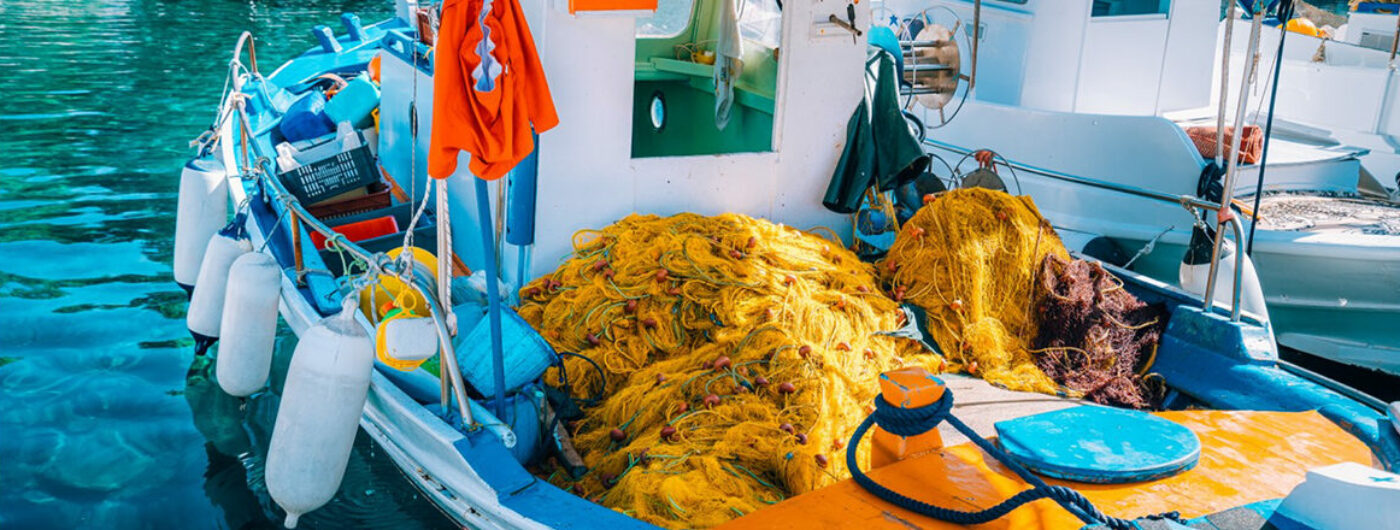
UfM promotes jobs in the Mediterranean region as youth receive training in the sustainable Blue Economy sector
- The importance of the marine and maritime industries will continue to grow in the Mediterranean area, as the “Blue Economy” sector is an engine of human and economic development. Yet, skills gap between education offer and labour market needs is accentuated by the digital and climate transitions.
- For instance, capture fisheries in the Mediterranean support around 200,000 direct and 500,000 indirect jobs, yet across the region, the workforce is aging, with close to half of all crew members over the age of 40, while only 17% are under the age of 25.
- On 14 and 15 April, the Union for the Mediterranean (UfM) gathered 80 students and young professionals from both shores of the Mediterranean for an intensive online training programme.
15th April 2021. 80 students and young people from across the Mediterranean took part in an intensive 2-day online training programme to address skills gaps and foster employability in the Blue Economy sector. The training programme formed part of the UfM’s commitment to promoting initiatives that foster careers in blue economy sectors and address barriers to employability such as the mismatch between skills and jobs.
Experts on skills for blue jobs contributed to 5 sessions covering a variety of topics related to blue jobs in the Mediterranean region: entrepreneurship, smart specialisation strategies, technological innovation for sustainable blue growth, and partnership building.
Marine and maritime industries are promising growth sectors in the Mediterranean economy, but require new knowledge, skills and innovation in order to deliver their full economic potential. The Blue Economy sector has radically changed and diversified over the last decade, passing from classical steel-intensive ship types to building the most complex and advanced technologies and vessels. It is currently one of the most research-intensive sectors in Europe (9% of its GDP invested in RDI).
A session was dedicated to showcasing good practices adopted by 4 projects supported by the UfM: BlueSkills, with the National Institute of Oceanography and Applied Geophysics (OGS) which develops new curricula and increases employability in the marine and maritime sectors through higher education programmes and multilateral scholarships for researchers; HOMERe, which targets high-profile students in their last year of study and uses internships to facilitate the transition from an academic environment to qualified roles in their own countries; Plastic Busters, which works with public and private entities to find collaborative ways to reduce plastic waste, and Co-Evolve4BG, which promotes sustainable coastal and maritime tourism through the co-development of human activities and natural ecosystems.
Itaf Ben Abdallah, UfM Senior Advisor on Higher Education and Research, commented: “A competitive, resilient and socially-fair blue economy needs highly qualified and skilled professionals. Many blue economy sectors have difficulties to find the right people, and the current COVID-19 situation has increased the challenges even more. For all of these reasons, and in order to bring the worlds of academia and work closer together, the UfM has recently launched an initiative aimed at reinforcing career opportunities of students, graduates and researchers. The need is urgent for the Mediterranean region to make the best use of the potential of the blue economy, and to rebuild better.”
80 students of the HOMERe network and BlueSkill Alumni took part in the interactive training programme, as future agents of “blue growth” in the Mediterranean. They covered topics such as tools to support start-ups and business incubation, opportunities for marine and maritime careers, internship mobility schemes between Mediterranean countries, Blue Economy higher education programmes, and the potential for economic returns from litter-free business solutions. It is hoped that with better understanding of these issues and resources, we can help the Mediterranean Sea fulfil its potential to deliver sustainable growth, jobs, and progress towards the Sustainable Development Goals.
Background Information
- Training sessions were streamed for the general public, and can be viewed on the UfM’s Youtube channel.
- In February 2021, the UfM Ministerial declaration on Sustainable Blue Economy expressed concern for “the mismatch between the skills of the labour force and the evolving needs of the industry, as well as a shortage of attractive jobs in the sector”, and reaffirmed “the need to prioritize education, vocational training and scientific capacity, including technology transfer, to anticipate transformative technological trends and promote just transitions”, as well as “the importance of working closely with the private sector to promote innovation and identify and address skills gaps.”
- Currently, we find a variety of support tools and programmes tackling skills development, which need to be mapped and rationalized to avoid duplication and loss of efficiency. An effort has been made in this sense with the publication by the UfM of a handbook for academia, industry and policymakers on “Reinforcing the Innovation-Employability Nexus in the Mediterranean”

